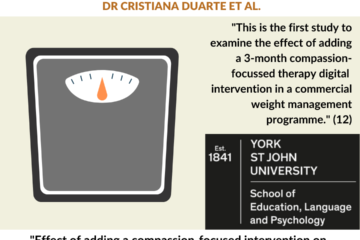whilst depressed individuals report similar numbers of future goals as their non-depressed counterparts, and attribute similar levels of importance to them, they predict that these goals are less likely to occur and that they have less control over their occurrence…
– Boland et al. (3)

In this article, Jennifer Boland and colleagues investigated positive future episodic simulation with depressed individuals, as a method of modifying predictions regarding the likelihood of occurrence, perceived control, and importance of positive and negative future events.
Training in positive episodic simulation could form a useful strategy for helping modify the biased beliefs that depressed individuals hold about their future. Research within the domain of experimental psychology suggests that training in episodic simulation and/or visual imagery can modify prospective predictions.
– Boland et al. (5)
This study can be downloaded here.



0 Comments